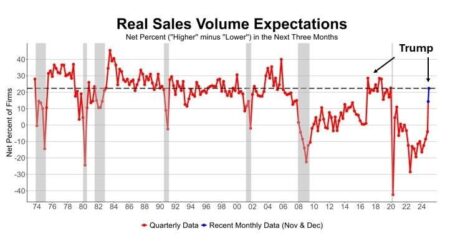Steve Sonnenberg is the cofounder and CEO of Awardco, a fast-growing rewards and recognition company.
Traditional holiday celebrations don’t land very well in the workplace. Not everyone celebrates the same days or has the same cultural or religious background, so how can leaders plan holiday parties that are inclusive to everyone?
My advice is don’t rely on traditional holidays such as Halloween or Christmas to spread appreciation and joy this year; instead, create your own celebration centered on your employees.
For the purpose of this post, I’ll call this holiday Employee Gratitude Week, but companies can call it whatever fits their people and their culture.
Why Focus On Employee Gratitude?
Why is it important to focus on appreciation and gratitude when it comes to holiday parties? Why isn’t a fancy company dinner and drinks enough? Why call it an Employee Gratitude Week? To answer these questions, take a look at the below stats:
• The simple act of gratitude can raise happiness by up to 25%.
• Recognition has the power to decrease employee burnout by 48%.
• Recognition from managers has been found to lead to 40% higher employee engagement.
Not only that, but showing appreciation can increase a person’s wellness, improve their sleep, cut down on their stress, strengthen their relationships, increase their positivity and improve their self-esteem. Showing employees appreciation and recognizing them for their efforts is the single-most influential thing a company can do when it comes to improving the employee experience.
Here’s the kicker, though: a recent study found that only 27% of employees feel recognized. And nearly 50% of them feel undervalued.
That’s why the idea of a custom work holiday came to mind. It’s an opportunity to provide meaningful, custom, and all-encompassing appreciation to your employees. Enter the Employee Gratitude Week.
Breaking Down Employee Gratitude Week
I suggest holding a week-long holiday that focuses on employees, with games, prizes, time off, food, family activities or other activities that fit your specific culture, people and budget. Make it a week of employee-centric fun to show how much the company appreciates its people.
Don’t worry too much about planning extravagant activities or giving expensive gifts. The most important part of this holiday celebration isn’t what you plan—it’s about how the employees feel.
To that end, it’s important to know the first step in planning your custom holiday: talking to your employees. Their feedback and ideas should shape each aspect of the celebration so that the event is a hit with as many people as possible.
After getting ideas and direction from employees, it’s time to plan what Employee Gratitude Week will entail. Here are some ideas:
Spirit Week
• Monday: Swag day, where everyone who wears company swag is entered into a prize raffle.
• Tuesday: Cook-off day, where employees bring chili, salsa, soups or other food items in a company-wide cookoff, complete with trophies and awards.
• Wednesday: Note passing day, where the company sets up stations where employees can write thank you notes to their coworkers.
• Thursday: Game day, where employees can take a break to play board games, video games, yard games, virtual games, etc.
• Friday: Movie day, where employees either watch a movie in the office or go to a theater together.
Wellness Week
• Monday: Step challenge day, where the company kicks off a competition to see who can hit a certain amount of steps in the week. Everyone who does gets a prize.
• Tuesday: Massage day, where employees can sign up for a massage at work.
• Wednesday: Mental health day, where the company provides meditation sessions or other mental health resources.
• Thursday. Financial health day, where employees can attend a workshop with a financial professional.
• Friday. Day off, where employees can enjoy a free day of PTO to relax with their loved ones.
Personal Growth Week
• Monday: Make a professional development plan, where managers meet with their employees to help them create a roadmap for their careers.
• Tuesday: Mentorship day, where employees use their new roadmap to set up mentorships with senior leaders in the company.
• Wednesday: Day of skill sharing, where employees can sign up to teach a class on a passion or hobby they have (crafts, yoga, exercise, etc.).
• Thursday: Guest speaker day, where the company hires speakers from different fields to share about various careers.
• Friday: Another day of 1:1s, where employees meet with their managers to adjust their plans based on what they learned this week.
The goal of this article isn’t to be prescriptive and break down exactly how to plan an inclusive holiday. Instead, take these as suggestions as you plan your own employee-centered holiday.
Make This Holiday Season Stand Out
The possibilities for your custom holiday celebration are endless. You can base your Gratitude Week on an existing holiday, such as Thanksgiving, World Smile Day (first Friday in October) or World Kindness Day (November 13th). You could plan it around your core values. You could include gifts or cards for employees.
The key is to help employees feel appreciated, supported and valued. As mentioned above, when employers make these efforts, employees can respond with greater happiness, engagement and motivation.
Forbes Business Council is the foremost growth and networking organization for business owners and leaders. Do I qualify?
Read the full article here











